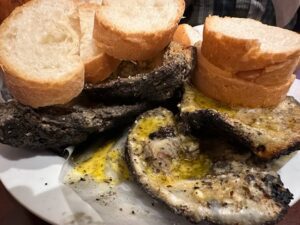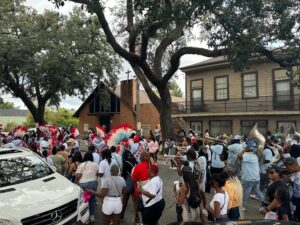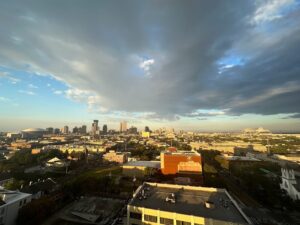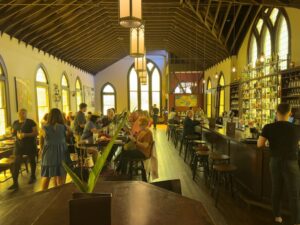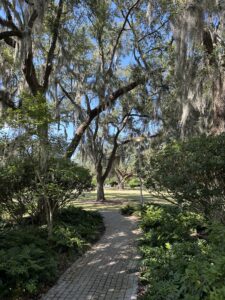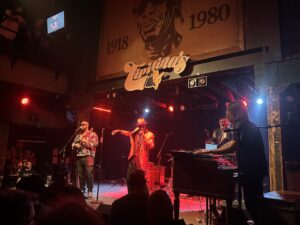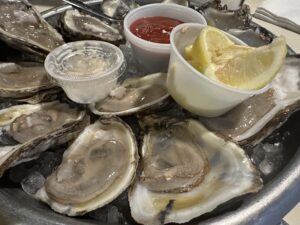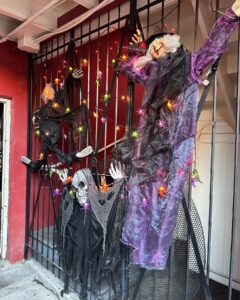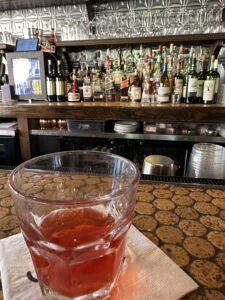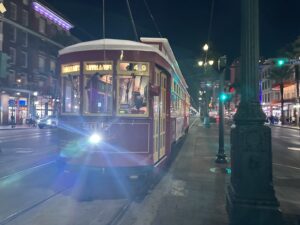“I was thinking, what if I came out? I really want to. I’m definitely bisexual. And I don’t want to have to sneak around pretending we’re platonic BFFs. I want to tell the people who matter.”
As our final episode of the first series of Heartstopper opens, it is shrouded within the hazy, foggy, deep, dark clouds of unresolved conflicts from episode seven. Our friend group of heroes is broken and the two main conflicts of the series (Nick’s coming out and Tao’s resistance to change) have shattered and converged directly upon Charlie. As I remarked in my response to episode seven, the two conflicts of our series have been ignited by a singular cause: the bullies themselves. If they didn’t exist, then Nick and Charlie could carry on with their relationship and Tao wouldn’t’ve had a difficult time accepting Nick into their friend group, allowing Charlie to be open with Tao about his relationship with Nick from the very start.
But the bullies do exist, and so our cast of hearts of gold find themselves enmeshed in two bitter conflicts: Nick’s inability to come out because he is afraid of confusing and surprising people and Tao’s inability to understand that Nick isn’t like the other “loud, gross year 11s” that he’s associated with. It is really difficult to see how these amazing hearts of gold could possibly find a way forward through all the heartache the bullies have caused, but we were given incredible clues way back in episode three that assured us that our core cast of heroes will be absolutely fine in the end.
The moment I’m referring to is when Tara and Darcy are dancing in the ballroom at Harry’s party, they eventually share an impassioned kiss, and Nick looks on in amazed wonderment. I had described this scene as a moment that thoroughly, utterly, and transcendently transfigured my hope and optimism for a possible world that ought to be, because as Tara and Darcy kiss, the music of Chvrches’ “Clearest Blue” erupts to an incredible climax, the screen flares with a celebration of the colors of the rainbow, and Nick is lit in pulsing lights of the bisexual pride flag. These visual clues all point to a way forward for Nick: he is bisexual, and the only way for him to move forward is to embrace his sexuality as openly and honestly as Tara and Darcy do theirs. But this can be very scary.
And as scary as that is, however, the lyrics of the Chvrches tune remind us that—despite all the shrieks of the seemingly insurmountable odds of gross bullies, ugly bigotry, appalling injustice, and fanatic evil—it is brightest lights of indestructible hope, unwavering friendship, and enduring love that will defy these oppressive cruelties: “Light is all over us like it always was,” they emphatically declare. And the light of hope, friendship, and love is, indeed, all over us and will outshine the worlds of terrible bullies and bigoted hatred. But the tune continues on, informing us that it is a light “shaped by the clearest blue.” Earlier in this same episode, the color blue was used in the rugby changing room to represent Nick’s conflict of trying to live up to the expectations of others, and during key moments throughout the succeeding episodes, blue was used as a symbol for moments where our characters were caught in lies and conflicts.
But for every lie there is a truth, and truth was consistently represented in Nick and Charlie’s form classroom, always lit in bright, golden, sunshiny hues; and those warmer colors of gold and orange were used at other keys moments as symbols of strength, honesty, and hope, pointing towards a future that will get better, providing a vision for the way things ought to be. And as we’ll see as this glorious first series of Heartstopper comes to a conclusion with its eighth episode, “Boyfriend,” these colors—in addition to a handful of other visual cues—continue to provide us with those reassuring clues that our cast of golden heroes will turn out not just fine, but gloriously brilliant, and that light is all around us appearing not only as comforting reassurances of glittery golds and blazing oranges but also cautionary premonitions of frosty blues. But it is always the light of brightest shining stars that will outshine those depressed worlds of terror, and whole universes will erupt in celebrations of hope, happiness, friendship, and love.
But we still have a journey to make to arrive at that celebration, so we join the episode in Charlie’s bedroom, and it is curiously lit much more severely in tones of blue rather than the sunshiny hues we’ve tended to see it lit in. Tao has been ignoring his text, so Charlie begins loudly striking his drums causing much noise despite also wearing his headphones, which causes Tori to enter, throwing a book at him to stop, a lovely reinvention of surprising Charlie not by suddenly appearing and disrupting his visual landscape but by unexpectedly removing him from his own, separate soundscape. Charlie reveals to Tori that he still thinks that Tao and Nick’s separate fights with Harry are both his fault, despite Nick telling him otherwise just last episode. But it goes deeper than that: he also reveals that Ben made him feel as if he was ruining Ben’s life just by existing, and now he feels as if he ruins everybody’s lives since Nick is getting into fights, and we can infer that he feels he’s ruining Tao’s life as well.
This is another one of this show’s importantly meaningful moments that shines that hazy, dingy light on the dark underside of a messed up world. Because we live in a world that assumes heterosexuality, this forces us queers to disrupt those assumptions by stepping out of the closet. I agonized for years about what I was, an agony that disrupted any chance of a normal childhood due to my own assumptions of a heterosexual world. And then we have to disrupt the lives of those around us when we find the courage to step out of the closet, and this inconvenient truth shakes worlds. And it is tiring and stressful.
But it is the assumptions that are causing the need for disruptions. And those of us who are lucky will find we only moderately disrupt the status quo for a little bit until we ourselves become a part of a new assumption. But there are many queers out there whose families shatter entirely, and some of us misplace blame on the mere fact of existing. And we sometimes take extraordinary measures to end our existence entirely. But how fortunate Charlie is in this lonely moment to have a loving sister like Tori, who hugs him closely, and emphatically states, holding back tears, “You’re not ruining my life,” in a transcendent moment that displays her “older sister magic” in such a touchingly hopeful way. I’ve really grown to love Tori’s character, and these eight episodes have allowed us to see her loving relationship with Charlie unpeeled, layer by layer, in such a consistently meaningful way. It’s really quite lovely.
The appearance of Tori’s words mark the moment in the series where our heroes begin to navigate their way out of all the shards of glass from the previous episode, and the title screen displays a beach with the sound of seagulls, recalling the very end of episode one, when Nick’s mum is driving him home and he’s beaming because of receiving Charlie’s text following his gross fight with Ben, “thank you x,” and animations of seagulls take flight across the screen. The titles also give us another clue in the form of the predominantly blue-green hues against a golden, sandy beach, pointing towards a new meaning—a new assumption—for the color blue, which will become increasingly apparent as this episode progresses.
However, Charlie needs one more reminder, a moment of tough love, that he isn’t ruining people’s lives and that choosing to disappear isn’t the answer. When we join Charlie at school, he sits down next to Isaac and Tao in class, and Tao is still clearly very upset with Charlie. Charlie tries to begin to repair things by suggesting they all do the javelin at the upcoming sports day event, but Tao coldly reminds him that he’s on the rugby team, which always plays a match at the end of the sports day, and so they won’t be able to do the same event this year, rugby in this moment recalling episode four when the sport was a symbol for the danger that Charlie puts himself in by associating with the rugby lads. So Charlie decides to tell Coach Singh that he’s quitting the rugby team. He also passes Nick in the hall, on the verge of tears, as he tells Nick he can’t have lunch with him. Later on, we also see him ignore Nick’s texts, and then as the sports day is getting started, Charlie even makes eye contact with Nick as they are all choosing a red or blue sports day bib (i.e. jersey), and he turns his back on Nick to avoid him again. Charlie is choosing to disappear, and it is heartbreaking.
This avoidance is just so hard to watch, and it continues on when Charlie goes to Mr. Ajayi’s art room, where his mentor comments that he’s been coming into the art room a lot recently. And this is where we hear Mr. Ajayi’s sage advice that I had referenced in my responses to episodes five and six: “When I was at school, I thought that hiding from it all was safer, easier. But sometimes the loneliness was just as bad. Don’t let anyone make you disappear, Charlie.” This wisdom, along with Tori’s emphatic declaration that he doesn’t ruin her life, provides Charlie with just enough extra momentum to get him to find the will to work a way out of the two conflicts he finds himself enmeshed in.
But Charlie will continue to get even a little more help navigating out of this, as Nick and Tao also are both able to begin to fully see their two conflicts and how they’ve converged upon Charlie. Earlier in the episode, Nick and Tao share a tough, honest chat together over lunch at school. Nick’s conflict comes into sharp focus pretty readily when he admits, “I think maybe he’s finding it hard having to lie to people about us. He’s not angry about me being in the closet or anything. He knows I’m not ready to come out.” And then Tao sympathizes with how Charlie struggles with how his very existence affects people: “He’s always had a tendency to believe that him just existing is annoying for other people. He’s not going to force you to come out, but he probably wants to be something more than secret-guy-you-kiss-sometimes-on-the-downlow. If you can’t give him more than that, it’s always going to make him feel a little bit crap about himself.” And in that moment, Nick’s conflict shifts away from Charlie and back towards Nick, where that prescient moment in episode three that foreshadowed Nick’s bisexuality and his way forward out of the closet, becomes even closer to reality. But the look of fear on Nick’s face is another one of those meaningful moments that reflects reality so cleary the pains we queers feel when we realize that the loneliness of hiding in the closet is worse than disrupting the assumptions around us. And Nick knows full well what to do next, as scary as that is.
Tao’s conflict, meanwhile, also begins to shift back towards Tao and away from Charlie. But this conflict remains more of a shared chore between our two best friends. While Tao angrily exclaims to Nick that his fears came true that Charlie would get bullied by the rugby lads by allowing their friend group to change by associating with Nick, Nick adds another layer to the conflict: “I think Charlie might be nervous about telling you [about me and him] because he really cares about your opinion. Because he loves you a lot.” Tao still seems unpersuaded by this remark, and it’s not without reason. He reveals that he thinks Charlie doesn’t appreciate that his resistance to allow the friend group to change was motivated by a desire to protect him from the bullies. And way back in episode four, Charlie even coldly revealed to Nick that his friends just need to “deal with it” that he’s ditching Tao and Isaac to have lunch with him. I specifically called that moment out as an uncharacteristically frosty remark coming from Charlie, but we will soon see this comment come full circle as Tao’s conflict begins to resolve.
Yet while the conversation with Nick and Tao still concludes within notes of uncertainty despite a strong display of tough love throughout the chat, it is so telling that the conversation happens outside on a school picnic table that has been painted gold, that color of warmth and honesty we’ve come to know will point towards that better future. And we also see this optimism reassured again when we see Elle, Tara, and Darcy, wearing golden shirts, walking towards Truham to begin the Truham-Higgs sports day. While Elle still seems anxious that she’s returning to Truham (recall that the two schools are a symbol for her transition from male to female, Truman itself recalling her past marked with bullying and misgendering), she still positively remarks, “I want to do this!” and the trio skips away towards the school, hand in hand, smiles on their faces. This moment shows that when you choose not to hide from it all, proceeding outwards and onwards, that things will get better, and our journey towards the celebration of hope, happiness, friendship, and love continues to draw nearer and nearer with a steadfast resolve and an assured confidence.
And that confidence towards our celebration comes soon enough when Charlie goes to Tao right as the running event is getting started. Tao’s been drafted into running, but Charlie offers to take his place since he is such a bad runner. They swap bibs, Charlie now dawning blue, and says, “I’m just sorry. Sorry for everything.” Not only do we see a visual cue that the weight of Tao’s conflict seems to be squarely back on Charlie, we can see in Tao’s face that he understands this now too. Once the race is over, Tao and Charlie meet, they hug with a conviction of enduring friendship, and they both gush forth their apologies, and it is such a sweet, sensitive moment. I wrote way back in episode one (in the fourth paragraph, to be precise) that this show is about a cast of characters that acknowledge their faults, change their habits, and express their love. And it is here on full display as Tao admits his fault, “I made it so hard for you to tell me,” and Charlie admits, “I should’ve been looking out for you as much as you were looking out for me.” What a scene for the ages! What an example these characters can provide us all! What a world we can strive to live in! This is why this show is so amazing, that through all the hardships, there is still an optimistically hopeful way forward.
However, we can see it clearly on Charlie’s worried face after Tao leaves the shot that there is still one more conflict to resolve, but we again are provided those incredible clues that our march towards our celebration will continue undeterred: two seagulls take flight across the screen, recalling the optimistic concluding moments of episode one and foreshadowing an abundantly hopeful conclusion to episode eight, as we will soon see.
Before long, the rugby match between teams red and blue gets underway, and as the match is about to start, Nick looks around at the crowd, unable to spot Charlie, and it’s clear from Nick’s face that he is so sad not to see him. Soon, however, Charlie does appear to watch the match, and eventually Nick does spot Charlie in the crowd. And the music of series composer Adiescar Chase plays its hopeful tune, a strong yet subtle rhythmic pattern in the bass recalling a heartbeat, our hearts taking a moment to stop, as it were, and reassess. And in a moment that is so sappy yet so amazing and wonderful and magical that the fact that it’s sappy doesn’t even bother me, Nick leaves the pitch, goes to Charlie, takes him by the hand, the whole world to see, a sunbeam creating a prismatic rainbow as they touch, our core cast of heroes looking on in amazed wonderment, faces beaming with smiles, and we know in this moment that our amazing hearts of gold will be gloriously brilliant.
Nick takes Charlie into one of the school corridors and reveals his heart—bravely, softly, forcefully, assuredly, and passionately:
“I don’t want to break up. I know people have hurt you, and you feel like I’d be better off without you, but I need you to know my life is way better because I met you. I’ll keep on saying it until you believe me. I don’t care about getting into fights or pissing off my mates or anything like that. It’s all worth it to be with you. You are the kindest, most thoughtful, caring, and amazing person in the whole world. And if you really want to break up, then I would respect your decision. But I want us to be together! You are my favorite person! I need you to believe me!”
And Charlie emphatically declares, “I believe you!” And they kiss, right in the corridor. What another incredible scene for the ages! What an incredible moment! What love on display!
Curiously, however, this loving scene takes place while Charlie is still wearing his blue bib, and the corridors are also unmistakably blue, and we would rather expect those optimistic golds and oranges to figure much more prominently during a scene filled with such love and hope. And blue will continue to unexpectedly figure more prominently in shots as the episode reaches its hopeful conclusion, but a song by Sunflower Bean, “Moment in the Sun,” begins to play as Nick and Charlie kiss in the blue corridor, and the lyrics declare that, “I want to feel them all.” It is here where the color blue has now become a part of a new assumption. All light is all around us, including blue, and blue is no longer to be feared for its lies and conflicts. Rather, it is to be embraced as a necessary reminder for when to put our guards up, when to be cautious, and when to allow a healthy amount of fear to enter into our realms to alert us when something might be the matter. I’ll be curious to see how this show uses colors in the next two series.
What follows as the episode marches towards its conclusion is that date that Charlie and Nick said they should go on back in episode six. And it’s everything you’d expect between two young lovers celebrating their relationship together: it’s hopelessly cute as they take photos of themselves in a booth, it’s unapologetically sappy as they ride a merry-go-round, and it’s gloriously elated as they share a private moment lying on the beach side by side, those seagulls we remember from episode one appearing one last time, bringing this whole first series to a triumphant conclusion. It’s triumphant not only for the reasons we’ve already seen, but also because Nick reveals to Charlie that he is bisexual and he wants to come out, and he’s ready to no longer hide in the shadows of the closet. “Does this mean we’re boyfriends?” Charlie sheepishly asks, and Nick resoundingly, if somewhat frustratingly, declares, “Yes! Was that not established the last ten times we made out?” And Charlie responds with a smile, “We never confirmed it,” adding with a laugh, “Why are we like this?” And Nick scoops Charlie up in his arms, brings him to the shore, and declares for all to hear, “You’re my boyfriend! I’m your boyfriend! We’re boyfriends!”
This celebration of love continues when Nick makes his way back home, his mum sitting at the table, and we’re treated to another one of those lovely scenes between Kit Connor and Olivia Colman. As I mentioned so many times over, it is such a delight when these two share the screen together, and that is ever more so true here. This final scene between mother and son captures a reality that should be true for all. It’s clear that Nick is getting ready to tell his mum something deeply serious as he prepares a cup of tea. When he sits down next to his mum, his eyes begin to well up with tears, and his mum knows that something extraordinary is about to happen, Nick allowing his real personality to be completely unburied and revealed. Olivia Colman delicately leans in as Kit Connor begins to speak, her eyes now also shimmering and sparkling with tears, and Nick begins to disrupt those assumptions of a heteronormative world, a moment that is intensely scary for so many of us queers, and he reveals about Charlie, “He’s my boyfriend. Charlie’s my boyfriend. I still like girls, but I like boys too. And me and Charlie, we’re going out. And I just wanted you to know.” And in a moment that shows how adaptable Nick’s mum is to accepting a new assumption, providing us with a vision for the way things ought to be, she hugs him closely and says, “I’m sorry if I ever made you feel like you couldn’t tell me that,” in one breath acknowledging her heteronormative comments from episodes five and six, fixing them entirely. And when Nick reveals how long he and Charlie have been together, they hug one more time, and his mum says, “I love you!” Three incredible scenes for the ages all in one episode! I don’t know if I can manage to take any more happiness in!
All of this said, I have obsessed at length about how this show provides us with remarkable role models that we can all aspire to be, and I want to make clear that any remarks I’ve made about the hard times we queers have endured should not be construed to suggest any illwill I have towards those closest to me. It’s not your fault. Rather, we must remember that these characters are incredible role models; they are not us. And sometimes role models, especially fictional ones, can be frustratingly perfect. And we as imperfect humans go through life, we will mess up, we will say the wrong things, and we will sometimes move backwards rather than forwards. And that’s okay. We make these mistakes while embracing a spirit of learning and growth and progress, and glorious shows like Heartstopper can provide us with incredible maps to reveal a hopeful way forward. And that is absolutely fantastic.
And as this glorious first series of Heartstopper comes to a close with that celebration I promised would come—a celebration of hope, happiness, friendship, and love—the last images we see are of Nick and Charlie sharing the tenderest moment together back on the beach, lying arm in arm, the golden sands reminding us of warmth and comfort, a blue beach towel reminding us of a new assumption that all light is around us, the optimistic music of Chairlift proclaiming, “I Belong in Your Arms,” and it fills me with such happiness that such glorious television could ever evoke such joy, such hope, and such love… whole beacons of light shining the way forward. This is the world I want us all to strive for. These are the people I want us all to admire. These are the dreams and visions I want us all to embrace. And I can’t wait to see what beacons of light we will get to see next series as these incredible stories continue…
Final musings for episode 8:
- As I remarked back in episode four, I really fell in love with Coach Singh as she stands up for Charlie: “Lots of gay people are good at sports, Charlie!” In this episode, when Charlie tells her that he’s quitting rugby, she’s clearly visibly hurt but also quickly inquires, “Have the boys been giving you a hard time? Do I need to talk to anyone?” All gym teachers should have such compassion for nerdy boys! And what an example Coach Singh is!
- I love the moment when Nick and Tao have their honest conversation at lunch, and Nick tells Tao he should try rugby because it’s good at releasing negative emotions. Tao’s incredulous face, eyebrows raised skeptically, is priceless!
- There’s also a scene between Elle and Tao that is just absolutely lovely, and it foreshadows events to come in a second series: their growing love for each other, not as best friends, but as boyfriend and girlfriend. They lie on their backs together on a table and Elle asks, “Is it awful being at Truham without me?” and without a beat, Tao declares, “Yes! Everything’s awful without you.” They both then sit up, and we’re treated to one of those gloriously underplayed reaction shots from Yazmin Finney as she takes William Gao’s hand, stares into his eyes, expresses a face filled with subdued fear and love, and says, “I was gonna tell you something.” And while she isn’t able to reveal what she’s thinking yet, we know in this moment that this story will continue to develop next series.
- I just love the shot of Charlie and Nick waiting for the train at one of those impossibly English train stations built of bricks, a rainbow in the background. I also couldn’t help but be reminded of the Pevensie children waiting at a similar train station in Prince Caspian. But those books are terribly problematic, yet here that image is reinvented into a new, better assumption of a world unshackled by oppressive religions.
- Also make sure you catch series creator and writer Alice Oseman appearing in the train as she sits to the left of Charlie and Nick as they make their way to their seaside getaway. Reportedly, she was drawing Nick and Charlie as they filmed this scene.
- Don’t forget to also catch that unmistakable voice of Stephen Fry who returns in episode eight after being absent since episode one as the voice of the headmaster over the school’s tannoy.
- Lastly, I realize that all my verbose thoughts about this silliness of colors could very well be something I invented entirely out of thin air and has no bearing in evidence. Yet it is still something I noticed and it made this show more meaningful to me. I hope it’s also more meaningful to you. It’s hard for me to accept that the makers of this show weren’t also deliberately planning these color palettes in intense detail to enrich the narratives of this incredible series. It just can’t be a coincidence that these patterns exist without thought and within chaos. The makers admit so themselves that certain lightings were very deliberate, and if I happened to notice other patterns—however seemingly unconscious on the part of the makers of this show—it’s still absolutely fantastic. And I love it! Please watch this incredible show, and walk with me as we journey towards a more perfect cosmos.
